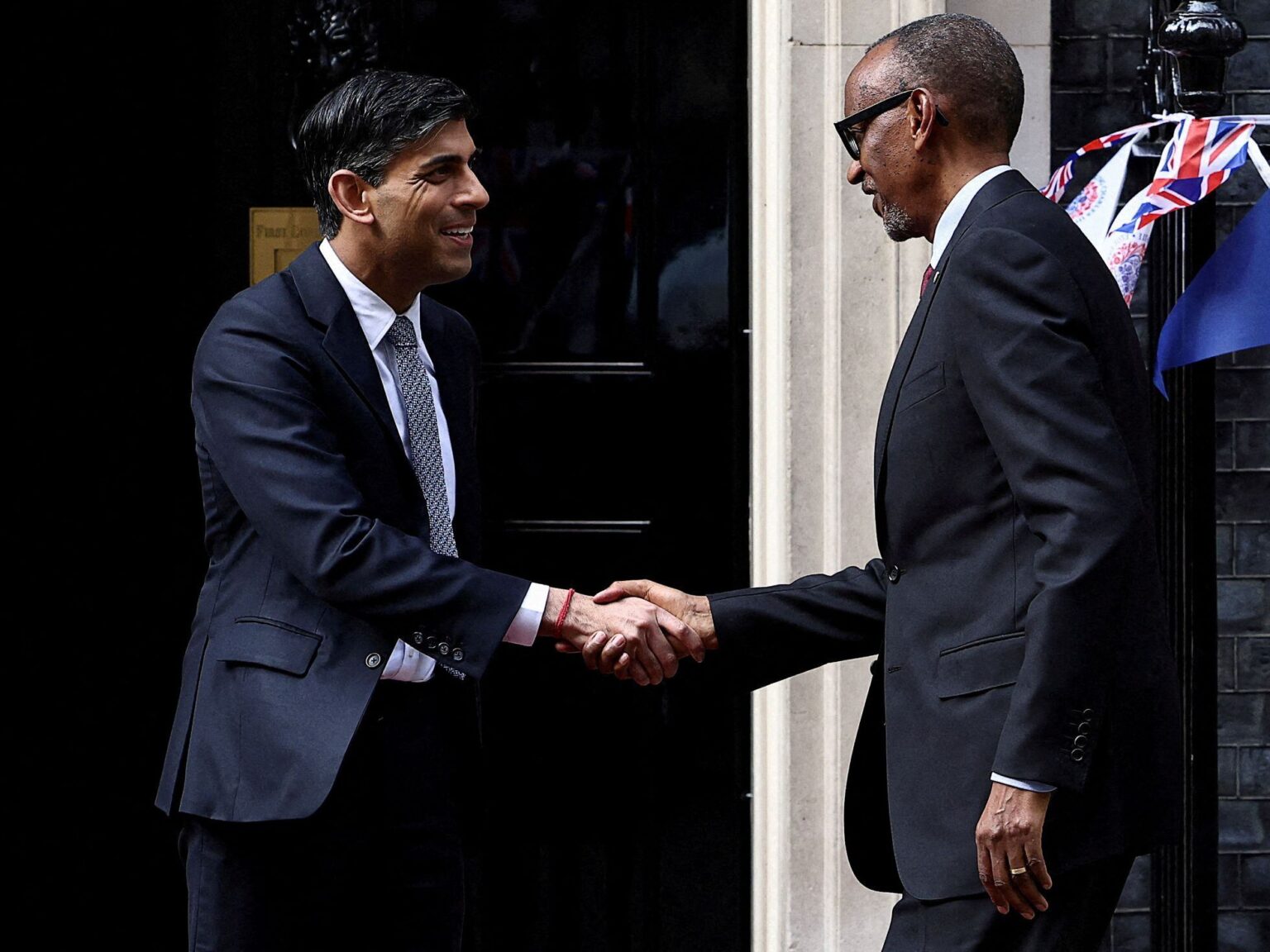- UN faults UK-Rwanda asylum treaty citing concerns on potentially harmful impact on global responsibility-sharing, human rights, and refugee protection.
- Spearheaded by Prime Minister Rishi Sunak, the legislation mandates judges to deem Rwanda as a safe third country.
- With deportation flights slated to start in July, the move is sparking weighty debates over the ethical implications of outsourcing asylum responsibilities.
This week’s passage of the “Safety of Rwanda” Bill by the UK Parliament has triggered alarm bells within the United Nations (UN), with two prominent leaders, Filippo Grandi, the UN High Commissioner for Refugees, and Volker Türk, the UN High Commissioner for Human Rights, raising concerns over its potentially harmful impact on global responsibility-sharing, human rights, and refugee protection.
Spearheaded by Prime Minister Rishi Sunak, the legislation mandates judges to deem Rwanda as a safe third country, paving the way for the deportation of thousands of migrants who have sought refuge in the UK, fleeing conflicts and economic hardships across Africa, the Middle East, and countries in Asia.
With deportation flights slated to start in July, the move is sparking weighty debates over the ethical implications of outsourcing asylum responsibilities and the treatment of vulnerable individuals seeking protection.
While proponents argue that the bill is a necessary measure to alleviate pressure on the UK’s immigration system and address concerns over irregular migration, entities such as the UN are raising concerns about the potential risks faced by migrants forcibly returning to Rwanda.
In December 2023, Rishi Sunak found himself under mounting scrutiny from lawmakers following the revelation that Britain had wired a staggering sum of 240 million pounds ($300 million) to Rwanda as part of an asylum plan that had ultimately faltered. This payment, raised questions about the efficacy and transparency of the deal between the two nations even as questions mounted that despite this substantial payment, not a single individual had been deported to the East African country under the agreement.
UK-Rwanda Asylum Treaty
According to the UN, there remains lingering questions about the adequacy of Rwanda’s asylum infrastructure and the protection afforded to asylum-seekers by authorities, underscoring broader anxieties about the erosion of refugee rights and the UK’s long-held commitment to upholding international humanitarian principles.
The Safety of Rwanda (Asylum and Immigration) Bill, introduced alongside the UK-Rwanda Asylum Partnership Treaty, comes in the wake of a previous ruling by the UK’s Supreme Court, which found that the proposed transfer of asylum-seekers to Rwanda would violate international and UK law due to deficiencies in Rwanda’s asylum system.
Despite this, the new legislation fails to address the protection gaps identified by the court, raising fears that asylum-seekers will face limited avenues for appeal even in the face of mounting risks.
According to Filippo Grandi, the enactment of this law represents a departure from the UK’s longstanding commitment to offering refuge to those in need, contravening the principles of the Refugee Convention.
He notes that safeguarding refugees requires a collective effort from all countries, rather than shifting responsibility onto neighbouring nations. Grandi calls on the UK to uphold its obligations and work with international partners to address the root causes of migration and share responsibility for protecting those in need.
“Protecting refugees requires all countries – not just those neighbouring crisis zones – to uphold their obligations. This arrangement seeks to shift responsibility for refugee protection, undermining international cooperation and setting a worrying global precedent.”
“The UK has a proud history of effective, independent judicial scrutiny. It can still take the right steps and put in place measures to help address the factors that drive people to leave home, and share responsibility for those in need of protection, with European and other international partners,” explained Grandi.
Assessing each asylum-seekers circumstances
While acknowledging the challenges posed by irregular migration, including the perilous journeys undertaken by refugees and migrants, the UN leaders express serious concerns that the new legislation will facilitate transfers under the UK-Rwanda partnership without adequately considering individual circumstances or protection risks. They urge the UK to pursue practical cooperation with countries along migration routes to firm up protection and provide viable alternatives, including expanding safe and regular pathways to asylum.
Volker Turk highlights the detrimental effects of the legislation on the rule of law, both in the UK and globally, drawing the parties’ attention to the importance of assessing each asylum-seekers circumstances in line with international human rights and refugee law. He warns that the legislation sets a dangerous precedent by limiting access to legal remedies and domestic and international human rights protections for a specific group of people.
“By shifting responsibility for refugees, reducing the UK’s courts’ ability to scrutinize removal decisions, restricting access to legal remedies in the UK, and limiting the scope of domestic and international human rights protections for a specific group of people, this new legislation seriously hinders the rule of law in the UK and sets a perilous precedent globally,” said Türk.
The latest legislation represents the culmination of a series of restrictive laws introduced by the UK since 2022, further impeding access to refugee protection. If implemented, it would allow for the summary transfer of asylum-seekers, including families with children, to Rwanda, with no opportunity for return to the UK.
Additionally, it severely curtails asylum-seekers’ ability to challenge or appeal removal decisions, mandating decision-makers to treat Rwanda as a “safe” country regardless of evidence to the contrary.
It is in light of these developments that the UN is urging the UK to reconsider its approach and uphold its commitments to refugee protection and human rights.
Read also: Kigali ruffled as UK court says Rwanda is not a safe country
